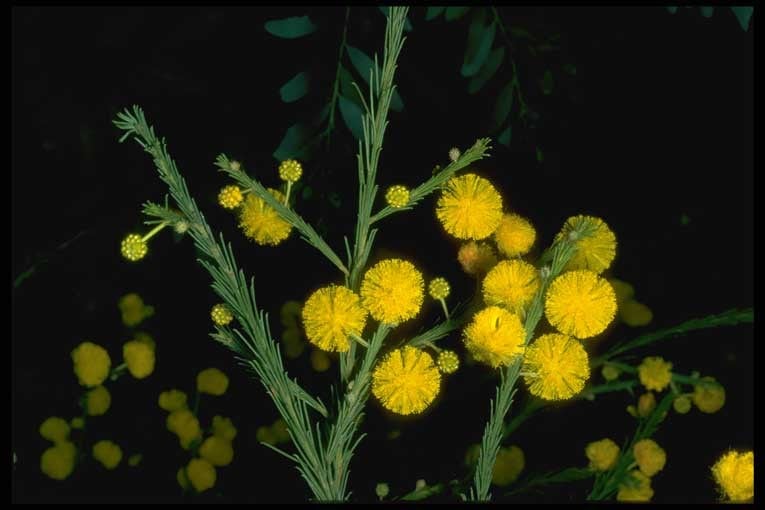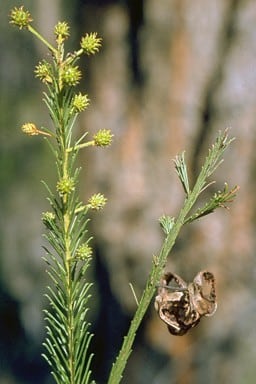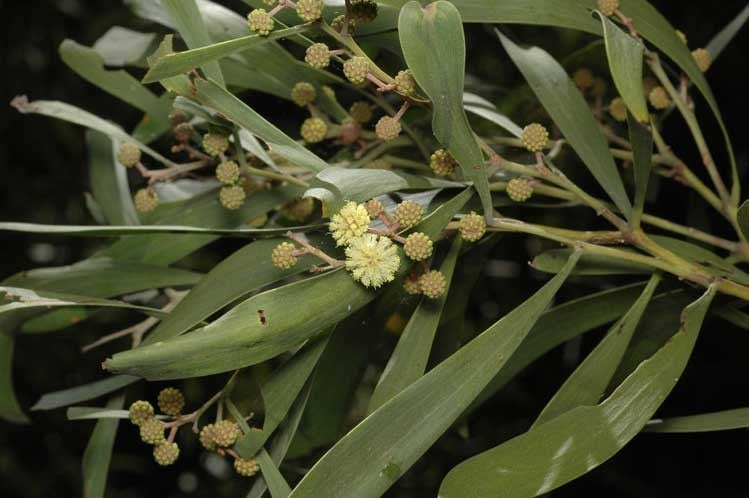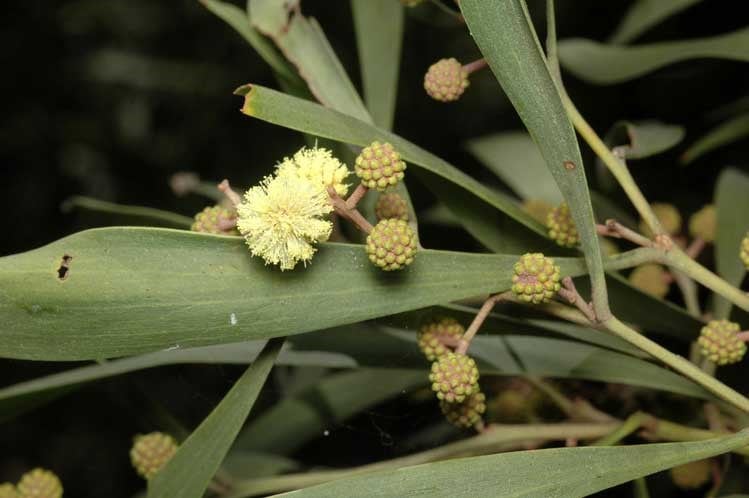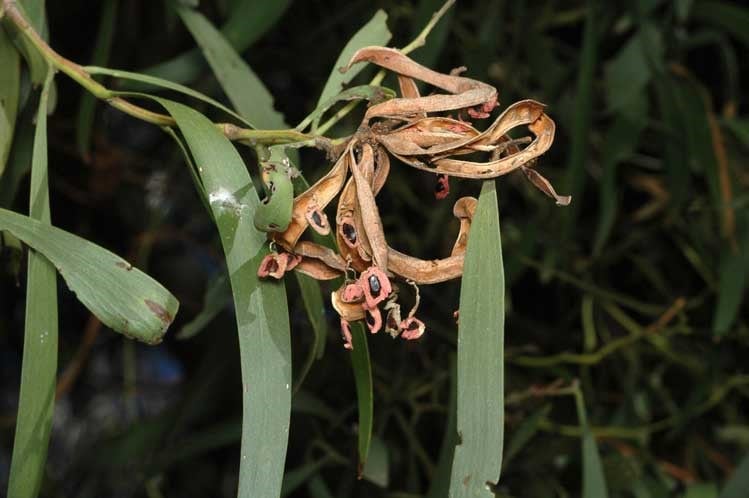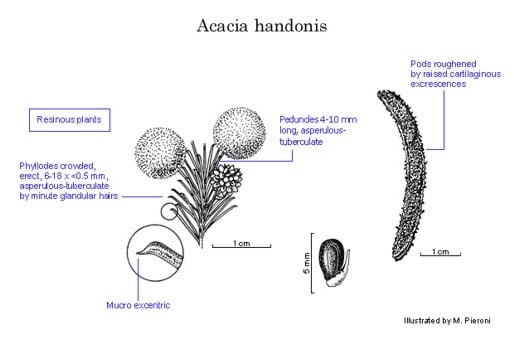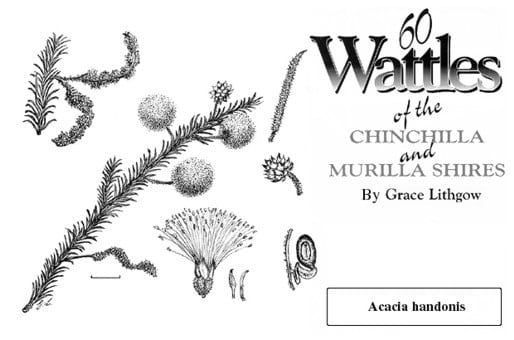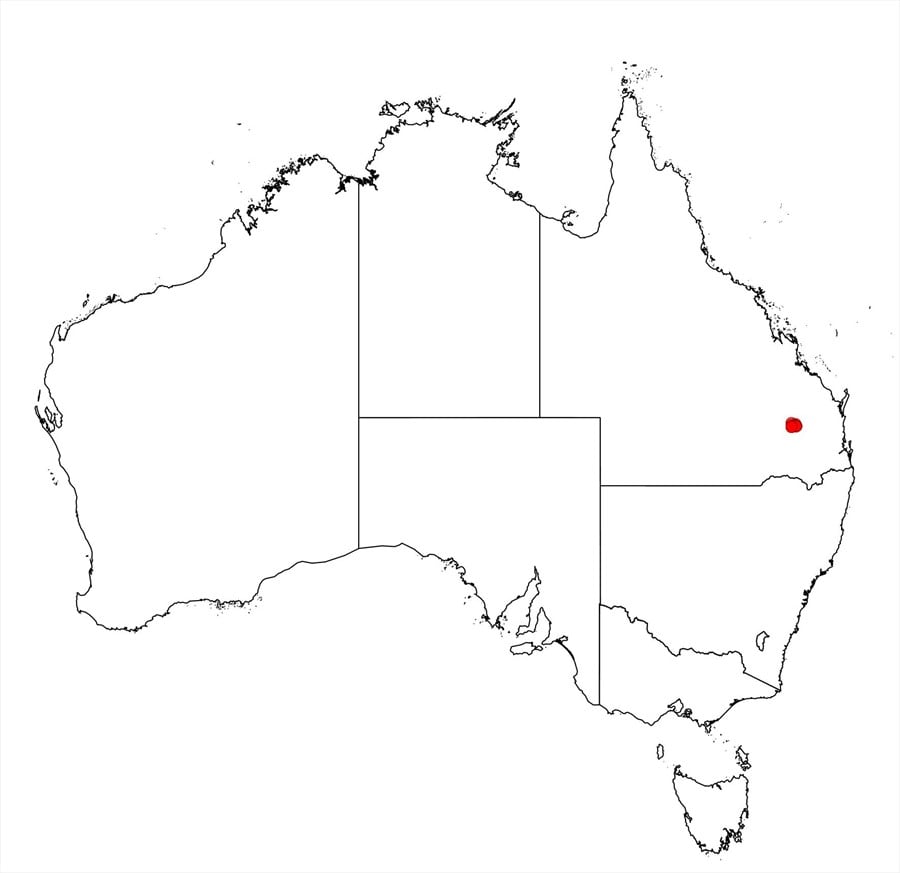Acacia handonis Pedley
WATTLE
Acacias of Australia
Common Name
Hando’s Wattle, Percy Grant Wattle
Family
Fabaceae
Distribution
Extremely rare, known only from the Barakula area, N of Chinchilla, south-eastern Qld.
Description
Resinous shrub to 2 m high. Branchlets finely ribbed below insertion of phyllodes; indumentum mostly of short scattered glandular hairs. Phyllodes crowded, sometimes subverticillate, erect, straight but slightly recurved at apex, probably subterete when fresh, ±depressed-triquetrous when dry, 6–18 mm long, c. 0.4 mm wide, excentrically mucronulate, with two indistinct longitudinally grooves when dry, asperulous-tuberculate; nerves not evident; gland minute, near middle of phyllode, often absent. Inflorescences simple, 1 per axil; peduncles 4–10 mm long, asperulous-tuberculate; heads globular, c. 30-flowered, bright yellow, viscid. Flowers 5-merous; sepals united to about the middle. Pods narrowly oblong, to 4 cm long, 3–4 mm wide, with prominent raised cartilaginous excrescences on valves. Seeds longitudinal, oblong, c. 4 mm long; aril clavate.
Phenology
Flowers mainly July–Sept.
Habitat
Grows in lateritic soil with grey sand or clayey silt with ironstone gravel, in gently undulating country, often on stony ridges, in eucalypt woodland and open forest.
Specimens
Qld: Barakula State Forest, 12 Aug. 1979, V.Hando (BRI, NSW, PERTH).
Notes
Related to the ‘A. johnsonii group’ but readily distinguished by the distinctive pods with prominent excrescences on their valves. This character helps relate the species to A. glutinosissima and A. rossei from W.A.; A. sedifolia (also W.A.) seems not far removed from this group even though its pods do not have prominent excrescences. Phyllodes superficially similar to those of A. brunioides subsp. granitica.
FOA Reference
Data derived from Flora of Australia Volumes 11A (2001), 11B (2001) and 12 (1998), products of ABRS, ©Commonwealth of Australia
Author
Minor edits by J.Rogers
B.R.Maslin
This identification key and fact sheets are available as a mobile application:
URL: https://apps.lucidcentral.org/wattle/
© Copyright 2018. All rights reserved.
